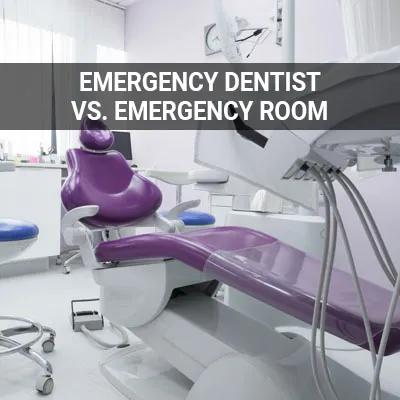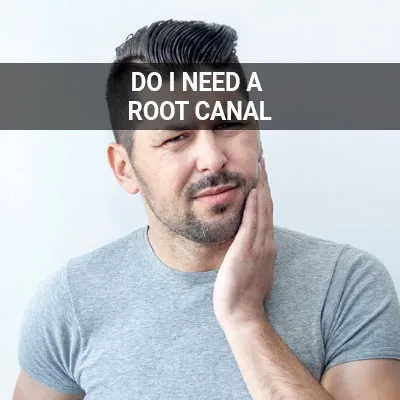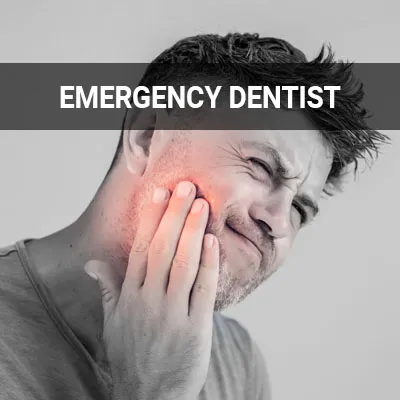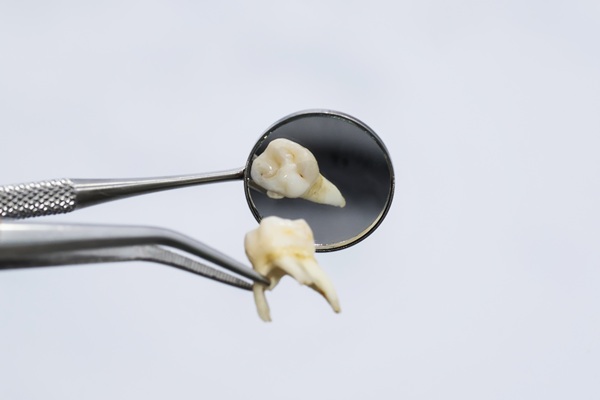Emergency Dental Care Brooklyn, NY
Dental emergencies can be frightening and overwhelming. Fortunately, prompt dental care can usually resolve the problem. If you experience sudden or worsening dental issues, seek help right away. Emergency dental care can treat pain, stop bleeding, and prevent infection.
Emergency dental care is available at Nostrand Dental in Brooklyn and the surrounding area. Our team helps patients cope with accidents and injuries. We also provide a wide range of preventive services. Call us at (718) 513-9685 to learn more.
When To Seek Emergency Dental Care
Like a number of other health conditions, a study published in The National Library of Medicine explains that dental emergencies can be life-threatening. Serious issues that need immediate attention include infection and ongoing bleeding. Certain traumas, especially those that involve facial bones, also require immediate treatment, as they can cut off the airway and restrict breathing. Seeking immediate dental attention for these issues can prevent trips to the ER at the hospital.
Uncontrolled bleeding and difficulty breathing are not the only reasons to get emergency care. There are numerous other urgent dental conditions that indicate an appointment should be made right away. Some of these issues and their symptoms include:
- Infection: Infection can be caused by numerous things, and it can be localized or more general. Common signs include swelling, red gums, pain, and pockets of pus. An infection may also result in a fever.
- Pulpal inflammation: According to Medical News Today, this is inflammation of the pulp, which refers to the tissue, blood supply, and nerves found in the middle of a tooth. It is often caused by a cavity infection and often is indicated by sensitivity, swelling, and pain.
- Dry socket: Dry socket can occur after the removal of the tooth, most commonly a wisdom tooth. It occurs when a blood clot becomes dislodged or does not form properly, which exposes the bones and nerves in the gums. Throbbing jaw pain, bad breath, and an unpleasant taste in the mouth are all possible symptoms.
- Tooth fracture: A fractured tooth can occur from an acute injury or from biting something hard. A fracture may be easy to spot if it is an obvious break. Additional signs to watch for are pain, temperature sensitivity, and swelling.
“Serious issues that need immediate attention include infection and ongoing bleeding.”
Emergency Dental Procedures
During a dental emergency, the dentist performs a complete evaluation. The dental team may begin with an X-ray or other imaging test to check for problems below the gumline. Imaging tests can also diagnose a joint injury or bone fracture.
Next, the dentist performs a visual inspection. Finally, if necessary, they stop any bleeding and stabilize the patient. Once the dentist makes their diagnosis, they develop a treatment plan. Each patient will need individualized care after an emergency.
If the patient has a knocked-out tooth, the dentist attempts to reattach it. If the patient acts quickly, the dental team might be able to restore the tooth. The dentist can also treat heavy bleeding. Patients may receive medication, sutures, or new dental appliances. The dentist also fixes any appliances that might have been broken during the emergency.
If the emergency involves a cracked tooth or broken crown, the dentist plans out the repairs. Sometimes, patients may need multiple office visits to complete their reconstructive work. The dental team can provide a treatment timeline and let patients know how long their restoration work will take.
Often, dental emergencies involve an abscess. Dental abscesses are pockets of infection hidden within the tooth. Sometimes, abscesses lurk below the gum line or within the jaw. Abscesses can be life-threatening without treatment.
Dentists treat abscesses by draining the infection. The dentist may perform a root canal to clear infected material from within the tooth. Afterward, the dentist cleans and repairs the tooth. Patients may also receive medication to help get rid of the infection.
“Without treatment, abscesses can be life-threatening.”
Non-Emergency Issues
Certain signs that indicate potential emergency situations are also signs of non-emergency ones. Therefore, if there is any doubt, it is still a good idea to make an immediate appointment. Bleeding is one example. Although some bleeding after a dental procedure is normal, it should only last around 24 to 48 hours, in most cases. If the bleeding is intense and uncontrollable, it is a good idea to visit the dentist right away.
Some dental emergencies are nonurgent and can wait a day or two to be seen. These include a small crack or chip in a tooth; a lost crown, filling, or bridge; a dull toothache; and food stuck between two teeth.
“Certain signs that indicate potential emergency situations are also signs of non-emergency ones.”
Check out what others are saying about our dental services on Yelp: Emergency Dental Care in Brooklyn, NY
The Risks of Untreated Dental Pain
Dental emergencies often cause severe or debilitating pain. Patients should report tooth pain to their dentist right away, as new or worsening pain is a warning sign of serious dental problems like infection or a fractured jaw. If the patient delays treatment, the infection may spread, or the fracture may worsen.
Dentists can perform in-depth testing to identify the source of the pain. For example, if the patient has an infection, the dentist can provide antibiotics. These medications clear up an infection before it can spread into the bloodstream.
Dentists can also treat other sources of oral pain, including broken or decayed teeth. Dental care can fix jaw problems, too. For example, the dentist can provide a targeted treatment if the patient's pain results from jaw misalignment or injury.
“However, pain that is sharp and constant indicates an emergency, so it is recommended to make an immediate appointment even if there are no other signs.”
Questions Answered on This Page
Q. When should one seek emergency dental care?
Q. What non-emergency issues should still be examined?
Q. What happens during an emergency dental visit?
Q. What are the risks of untreated dental pain?
People Also Ask
Q. When should I go straight to the emergency room?
Q. What methods are available to repair a chipped tooth?
Q. What are the restoration dentistry procedure options?
Q. What are some of the signs indicating a need for tooth extraction?
Frequently Asked Questions
Q. What is a dental emergency?
A. Dental emergencies may include a broken tooth, oral bleeding, or severe pain. A knocked-out tooth also qualifies as an emergency. If you experience any new or worsening symptoms, it is best to seek care right away. Call your dentist for an urgent appointment. If you are not able to reach your dentist, consider visiting the emergency room.
Q. Are dental emergencies life-threatening?
A. Some dental emergencies may put your life at risk. Oral infections can spread into the bloodstream and travel to your heart or brain. If the infection is not treated, you may develop life-threatening complications. Always seek emergency care if you experience severe oral pain or a sudden high fever.
Q. What should I do if I experience heavy oral bleeding?
A. If your gums or inner cheek are bleeding, find a clean cloth or sterile gauze. Apply steady pressure until the bleeding stops. If the bleeding lasts for more than a few minutes or if you took a blow to the head, seek emergency medical care. Make sure to report the injury to your dentist as soon as possible.
Q. What should I do if my tooth gets knocked out?
A. If you lose a permanent tooth, rinse it in clean water. Next, try to gently reinsert the tooth into the gum. Hold the tooth in place with a finger or by biting down. If you can not reinsert the tooth, tuck it between your cheek and gums. Then seek immediate medical care. If a dental provider acts quickly, they may be able to restore the tooth.
Q. What should I do if my teeth were damaged in an accident?
A. After a serious accident, seek immediate medical care. Some injuries might not appear right away. Adrenaline can numb, and you may not notice that you have life-threatening injuries.
If you suffered a blow to the head, go to the nearest hospital or call emergency services. Afterward, contact your dental provider. They can provide treatment for cracked, chipped, or lost teeth.
Dental Emergency Terminology
Call Us Today
Fast care for a dental emergency can be crucial. If in doubt about whether you are experiencing a dental emergency, call us at 718-513-9685 for an appointment in our Brooklyn office.
Helpful Related Links
- American Dental Association (ADA). Glossary of Dental Clinical Terms. 2024
- American Academy of Cosmetic Dentistry® (AACD). Home Page. 2024
- Colgate®. Lost Filling Or Crown. 2024
- Orajel™. Toothache & Denture Pain Relief. 2024
- WebMD. WebMD’s Oral Care Guide. 2024
About our business, license, and website security
- Nostrand Dental was established in 1998.
- We accept the following payment methods: Cash, CareCredit, Check, Discover, MasterCard, and Visa
- We serve patients from the following counties: Kings County, New York County, Richmond County, Queens County, and Nassau County
- We serve patients from the following cities: Brooklyn, Manhattan, Queens, Staten Island, and Long Island
- NY (License #46702). View License Information and Specifics
- National Provider Identifier Database (1457434540). View NPI Registry Information
- Norton Safe Web. View Details
- Trend Micro Site Safety Center. View Details
Back to top of Emergency Dental Care











